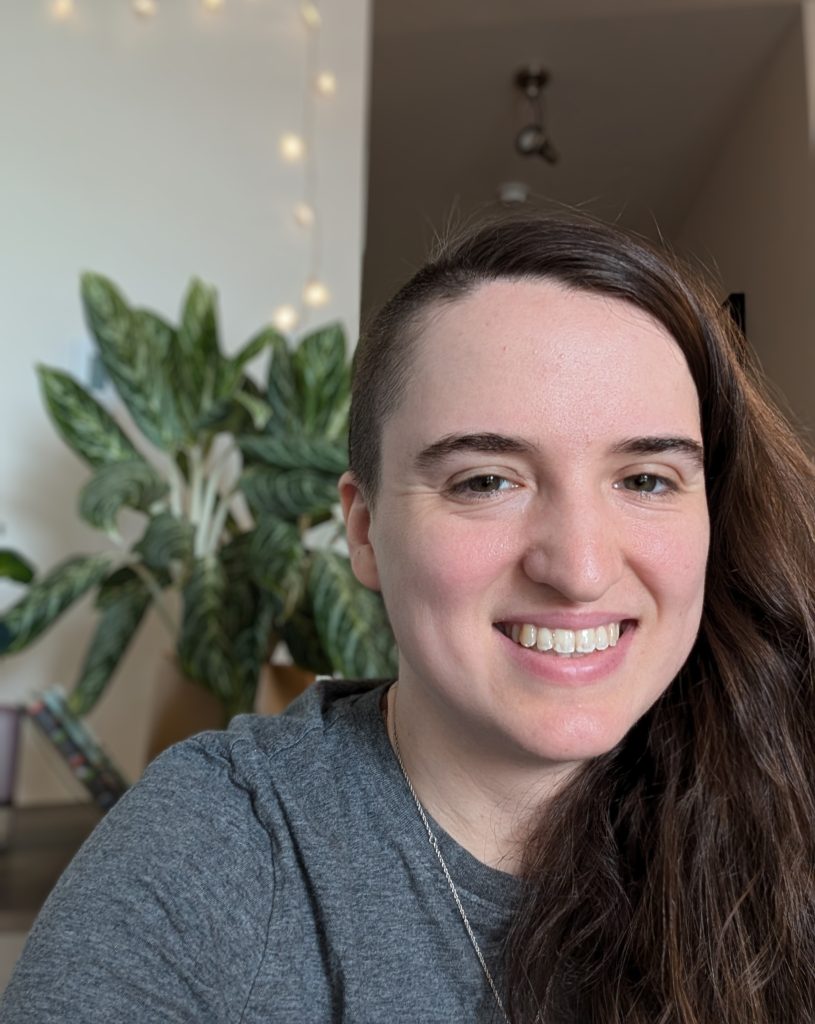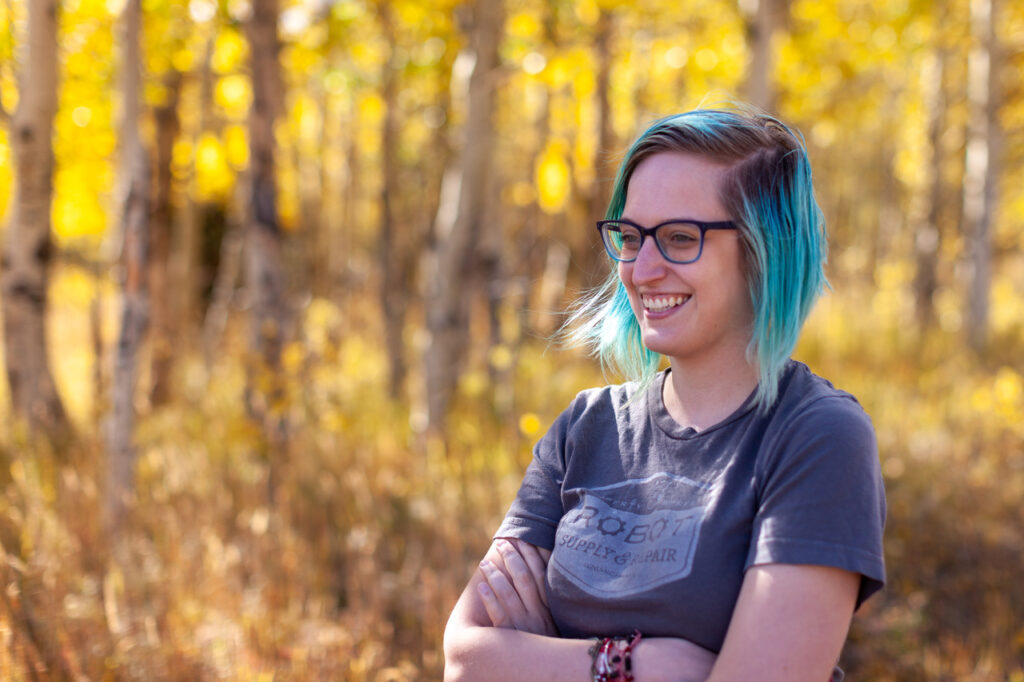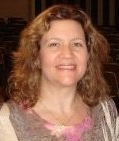edited by David Steffen
Awen Drome looked back down at his half-written exam and groaned. The velocity integral in question fifteen was unraveling into a giant mess, and the students would be helpless against it. He should just throw down his stylus and give them the same finals as last year. The material never changed: energy diffusion rates, course trajectories in deep space, everything the future luminaries of the Inquiry would forget and relearn a hundred times before, God help them all, they were hired into the innards of Navigation or Sustainment. They’d manage. It only felt like this crop was a thousand times duller than their predecessors. But then they’d all ask their cousin or their cousin’s cousin for the solution set, and then they’d all pass having learned jack shit. Which the administration would probably celebrate.
A chime at the door. “Oh, come in.” He tossed the stylus, relishing the bounce.
A shock of blond hair above a jowly face: Professor Biri Micom.
Awen’s mood lightened. “Evening!”
“The students are planning a statue hunt tonight.”
Awen blinked. “Relevancy?”
Biri snorted. “You are acting dean,” they said. “Did Maryv leave Ollie with you?”
“Oh fuck me,” he said aloud. “Yeah, she left it, right next to the faculty evaluation records and all the budgetary data and my goddamn pay raise.” For the dozenth time that month, he hoped that Maryv’s shuttle hit a micro-asteroid the shielding couldn’t prevent and exploded into debris.
“We should find it, move it to the library pedestal,” Biri said. That was the traditional place for the statue, where the night of stealing and counter-stealing between the rival residential colleges would begin. Awen still wasn’t sure why that made it his problem, though.
“A statue hunt, at a time like this! Don’t they have better things to think about? We’re barely out of the Oort cloud, and after that comet last year I’m not sleeping easy yet. And then there’s the algae die-offs. The kids need to stay focused so they can actually help the Inquiry, instead of being just wasted mass.”
Biri let Awen talk. When he finished, they said, “You can’t possibly believe that. You never blew off steam? You never broke into the music complex with us and then ran straight into a security officer when everyone scattered? Never?”
Fair shot. “Maybe I’m just sick of cleaning up Maryv’s messes.”
“More than you’re sick of grading?”
“I’m not grading,” he muttered. “This had better be quick.”
***
They tried Maryv’s old office first. Somehow, Maryv abandoning the Inquiry and taking her chances with deep space had left Awen with all of her responsibilities, but none of the perks. Her office had gone to Ursei Dasaro, Professor Emeritus of Topology, who, as far as Awen could see, spent most of her day yelling at her nervous graduate students.
Dasaro was leaving the office as Biri and Awen came through the hallway’s automatic door. She was well-groomed, with a self-important cast to her face. Every item of clothing, from her shoes to the pin holding back her hair, was shiny and new, practically still had the creases from the fab-system. Awen looked her up and down.
Biri broke the silence: “Hi, we don’t mean to keep you. Did Maryv leave the launch commemoration statue with you, or in her office?”
Dasaro scrunched her face. “Now, I can’t say I’ve seen that. It’s quite distinctive, if I recall. Old world style.”
“So it’s not in your office?” Awen asked.
“No, no, I can’t say that it would be. There were a few boxes of…” She twirled a languid hand. “…dross. But nothing quite so large.”
“Could we check?” Biri waved their hand by the door sensor, but of course it was keyed to just Dasaro’s biometrics.
“Oh, no, I’m sure it wasn’t there. And I refabbed all of those old things, like I said.”
“Moving fast,” Awen muttered.
Biri shot him a look. “Thanks, then. We’ll check somewhere else.”
As Dasaro walked away, Biri mouthed “politics” and gave an exaggerated smile.
Awen waited for the whoosh of the hallway door settling into place. “Where do you think she got all that new finery? Certainly not from the reimbursement office, not for the third time this year.”
“Look, scholars who’ll never reach their true potential deserve some comfort, don’t they?” Biri murmured.
The quip could as easily have referred to either of them as to Dasaro, and both of them knew it. Not that it was easy to reach any potential when the academic establishment on Earth was over three light-years away and receding. Awen sighed. “It’s criminal, is what it is.”
Biri shrugged. They fiddled again with the office sensor, but the light stayed red. “She’s an old person. She can have her luxuries.”
“We’re all in this together, remember,” Awen said bitterly, echoing the phrase the news kept repeating after every setback. “If everyone on the ship wants new clothes three times a year and there’s a 60% yield on recycling, how long would it take us to run out of raw material?” That would be a good exam question, maybe for freshmen. Though afield from Applied Mathematics as traditionally interpreted.
“I didn’t say it was right. It’s not. It’s the sort of materialistic shit that even a hundred years ago would have been stamped right out. But, Awen, darling, you can’t fix every slimy motherfucker in the world.” They slapped the sensor, tried it one more time. No luck. “Maybe Ollie’s in storage. The hunt starts at 2100. We’ve got time.”
***
University storage was deep in the hub of the ship, where the centrifugal gravity was weak enough that Awen always got queasy. The two of them waited in the rickety elevator as it headed hubward and the descriptions on the display flickered: offices, classrooms, cafeterias.
“If Maryv has the statue on her shuttle, so help me, I will launch myself into the void after her,” Biri muttered.
“Don’t do that.” He knew Biri was joking, but he hated the thought of them alone out in deep space, with only the hope of finding one of the other generation ships. It was even hard to picture Maryv, though Awen would have sworn he didn’t care if she lived or died. But imagining the half-sleep of the anti-aging drugs that would give Maryv the best chance of finding something else before her natural lifespan ran out—scary as hell. He still didn’t understand it, what caused a person to give up her tenure, for God’s sake, not to mention her entire life on the Inquiry.
The display cycled through the more esoteric floors of the university: fusion labs, maintenance, garbage processing and reclamation. Storage. The doors opened onto a narrow entryway. Awen’s stomach responded to the lowered gravity by turning over.
Biri studied the array of doors before them. They pushed a few buttons on one of the information tablets. “It can’t possibly be with paperwork. Maybe ‘Department Goods,’ whatever that means?”
They pressed something and one of the doors opened with a hiss of air. The lights in the room beyond flickered shakily to life. A mass of boxes, cardboard and plastic, piled on all sides of the space. On top of the boxes were various knickknacks: some old mortarboards, broken glassware, a cup full of dirty paintbrushes.
Biri put their hands on their hips. Silhouetted against the light and the mess, they looked like an explorer in an old painting. Wanderer above the sea of absolute crap.
They made it two steps into the room, as Awen watched fondly. A change—alarm in their body language. Awen jumped forward as Biri stumbled out, sluggish in the quarter g. They sucked in air, gasping. “Shit, shit.” They slammed a hand onto one of the tablets and the door stuttered as it closed.
“What’s wrong?”
“Stale air.” Biri coughed, then cleared their throat with a lighter affect. “Sorry. Scared me. It’s fine in here, right?”
Awen breathed in deeply. The air was hot and had an unpleasant smell of abandoned things, but it filled his chest the way the nitrogen-oxygen mix was supposed to. “Should be.” The fear passed. Awen began to think: What cascade of warning systems had to fail for this to be a mistake? Where had the oxygen gone? And then the fear was back, but deeper, a maw gaping beneath his feet.
“Damn.” Biri smiled, rueful. “I can’t believe they just let me open that door. Whatever happened to automated warning systems? What a dump. I should write the ombud. I guess I’ll go find an oxygen tank or something and go spelunking. It’ll be an adventure. You don’t have to come, I know you hate it here.”
“Biri.”
They caught something in his tone and stopped.
He met their soft-lidded eyes. “This is a bad sign, right?”
“For…?” But still, 30 years after the two of them had first met and a dozen years since they’d last worked in close tandem, Biri always knew what he was thinking. “Mistakes happen. We can’t extrapolate…” they said softly, chewing on their thumb.
“How can it be a mistake? Where did the oxygen go if no one’s been down here in months? Nothing’s using it.”
“I meant the mistake could be the lack of warning system. Honestly, it’s smart to clear out O2 from unused rooms. Thrifty even…” Biri trailed off. Then they sat down as heavily as the gravity allowed.
“You see,” Awen said, trying to ignore the roaring of his blood in his ears.
“I am wondering,” Biri began slowly, “why Tlin Maryv left. It occurs to me now, that if the Inquiry’s premier statistician and probabilist wants to shoot through space in a box the size of a classroom, it’s because she thinks her odds are better out there than in here.”
“And the odds she’ll ever find another ship out there, not to mention one accepting castaways…”
“I guess I thought she was having a midlife crisis,” Biri said. They jumped to their feet and began fiddling with the tablet by the door. “Last accessed 3 months ago.”
“Pre algae die-offs.”
“Fuck. This is crazy right? Some conspiracy shit. They said the virus only affected a few of the algae pods. They wouldn’t just… start shunting oxygen out of non-essential areas? Not without telling us something was really wrong. Imagine the work that would take.”
Awen’s thoughts whirled through the storm of his mind. He still felt like vomiting, and it wasn’t just the gravity-sickness. He ticked off his points on his fingers. One: “Someone is diverting oxygen, at least from this one storage room. We need more data.” Two: “Would it be crazier for them to tell us? Can you imagine the panic? 250,000 people, all aware that the air is running out. There’d be riots. It’d be like 2668 all over again.” Three: “But they did tell us, sort of. The die-offs are all over the news.”
“All over the news, but in the same tone as, I don’t know, when the governor sacked his cabinet, or when the cooling tanks flooded Fletcher Park. They didn’t say ‘this is an existential threat’! How dare they bury it with all the other nonsense?”
Awen imagined the suits in their meetings, trying to decide who needed to know and who deserved to be swaddled in comfortable ignorance. The image made him shudder. “You’re the biologist. How much of the ship’s oxygen needs were being met by the algae tanks that went under? How long will it take for the unaffected tanks to repopulate?”
“I’m a genomicist, not a fucking phycologist! Besides, the numbers are cooked. They have to be. One tank is nothing. There’s redundancy in the system. Unless the virus spread from tank to tank…” They trailed off. “Anh Weia’s been in meetings all week. She is a phycologist. I thought she’d been looking harried, but I never considered this.”
Should that comfort him? At least someone qualified was being consulted. But, for any civil servants to come down and beg for help from the eggheads, something was deeply wrong.
“We have to rule out that it’s a fluke,” Awen said. His head spun. “If it’s intentional, there will be logs. There’ll be other dead zones too.”
“And then what? We uncover the conspiracy and then what? We’ll know how fucked we are, but we won’t be able to do anything about it. Unless you’ve got your own shuttle plans.”
“The more we know, the more we can… I don’t know, think of something.”
“Write up a study on the certainty of our impending death, you mean?” Biri breathed in. Their tone changed. “I have to go find an oxygen tank. We have a statue to find.”
“You can’t be serious.”
They met his gaze. Their hands were shaking, but they clasped them together. “There is nothing else to do,” they said with unfamiliar intensity.
***
Awen waited down-elevator. That should have made the gravity sickness better, but of course his stomach continued to churn. While he waited, he undertook a comprehensive search through the data: promised oxygen output of the algae tanks, measured numbers (where available) from various points around the ship. Energy expenditures from vent-points near little-used sections consistent with breathable air being pumped out and carbon dioxide being pumped in. Data analysis was something to do, a path for his brain to follow that wasn’t panic.
Biri came back with the statue, both covered in dust. Oliver Rafael Duncan, better known as Ollie. It didn’t look like much, at least not tarnished with the fingerprints of hundreds of years of students. Just a metal-plated statue of a man sitting in a sleek chair. Duncan had planned to be the first president of the university, but when the Inquiry left Earth, he’d stayed behind to take care of his aging parent. His statue had been dedicated in his place. Awen wondered what he would think, if he’d ever known of the chaos that once every few years swirled up around his likeness.
“You found it,” Awen said.
Biri looked at him. Awen willed that connection the two of them had, the intuitive sense of each other from decades of friendship, to shut tight. “Not hard. There was a map,” they said, their voice fluty and unsure.
“Almost 2100. We should get to the library,” he said as gently as he could. And maybe that was enough, this uncharacteristic gentleness, because Biri knew, then, what he had found. “Let’s have a drink,” he said.
***
They said nothing as they sat in the hallway leading to the library main entrance, passing the liquor between them. After the third statue hunt had ended with engineering students hacking the library lock, a few faculty usually guarded the door—it was tradition. The university’s designers had underestimated students’ desperation to get places they shouldn’t be and had probably, like many of their forebears, pictured the Inquiry as some high-trust utopia without crime or locks. Lucky them.
The liquor felt like acid in this throat. The sound of the vents and the climate control system normally faded to a useless hum, no semantic content, but today they were all Awen could hear. How long did they all have left?
Ahead, a door opened and the sound of laughter tumbled through. A handful of undergrads came around the corner. “Oh, shit,” one of them said at the sight of Awen and Biri, and they retreated, still laughing. They were drunker than Awen. Their voices carried through the hallway in a mess of words: “Can’t we just ask? What’s the worst that could happen?” “Come on?” “No way, I have my rec letter to worry about.” “…suspended!”
In the end, a single undergrad came around the corner, walking stiffly like someone trying very hard to seem sober. Awen recognized them but he couldn’t remember their name. They had a ribbon tied around their wrist representing one of the dozen colleges competing in the hunt. “Hi, um, Professors. I don’t suppose you could, you know, just give us a few minutes with the door? We wouldn’t tell anyone.”
Biri, in all their sensibility, their voice only a little hoarse, said, “Nice try, Alder. But would that be fair?”
Awen couldn’t say anything at all. He was thinking this child is doomed. Not tonight, God willing, but soon, or soon enough, for a value of “soon” equaling “sometime in the next few years.” Before they would live their life. Or maybe they’d all get through this crisis, and it would be a different one that would take them out. Maybe they’d be overtaken by the fabled ships from Earth whose newer tech let them leapfrog the Inquiry. There was no way to know, and no way to do a goddamn thing about it.
The undergrad shifted from foot to foot. “It would be fair, because they could ask just the same. And we really wouldn’t tell.”
Biri swirled their glass. “What do you think?” they asked Awen softly.
What did Awen think? He thought there was something perverse in sitting here pretending the sky wasn’t falling. Didn’t this child, Alder, deserve to know? But didn’t they deserve to be happy in this infinitesimal moment before all the knowledge was out and things truly fell apart? Was that what everyone in the government—Maintenance or Leadership—had been thinking, when they’d made the decision to cover up the die-offs? Just let the sheep graze, keep them content.
“Sorry, not tonight. Good luck. But you’d better hurry,” Awen said.
The undergrad’s alcohol-flushed cheeks went even redder. “Yes, Professor. Sorry.” And they were gone.
Biri sent him a sideways glance. He didn’t have to explain, he never did with Biri, but he felt compelled to: “If we just gave it to them, they wouldn’t have the satisfaction of getting it. You understand, don’t you? They have to solve the small problems so the big ones feel possible.”
Biri nodded. “I hope…” But they both knew what Biri hoped, so Biri left the words unsaid.
Awen and Biri sat in silence as the lights cycled for nighttime, as from behind them in the library came sounds of clattering and hushed voices.
© 2025 by E. Carey Crowder
3032 words

E. Carey Crowder lives in Seattle, Washington. Carey writes code for a living, speculative fiction for fun, and cryptic messages only on odd-numbered Tuesdays (mostly). This is Carey’s first published story.
If you enjoyed the story you might also want to visit our Support Page, or read the other story offerings.


 Paul Starkey lives in Nottingham, England, but has no information regarding the whereabouts of Robin Hood. He’s wanted to be a writer since he was ten years old, but didn’t really start writing seriously until he hit his thirties. Since then he’s been making up for lost time. He’s had stories published in the UK, USA and Australia, including being published by Ticonderoga publications, Alchemy Press, Fox Spirit and the British Fantasy Society journal. In November 2015 his novella ‘The Lazarus Conundrum’ (a zombie story with a twist) was published by Abaddon Books. He’s also self-published several novels.
Paul Starkey lives in Nottingham, England, but has no information regarding the whereabouts of Robin Hood. He’s wanted to be a writer since he was ten years old, but didn’t really start writing seriously until he hit his thirties. Since then he’s been making up for lost time. He’s had stories published in the UK, USA and Australia, including being published by Ticonderoga publications, Alchemy Press, Fox Spirit and the British Fantasy Society journal. In November 2015 his novella ‘The Lazarus Conundrum’ (a zombie story with a twist) was published by Abaddon Books. He’s also self-published several novels.